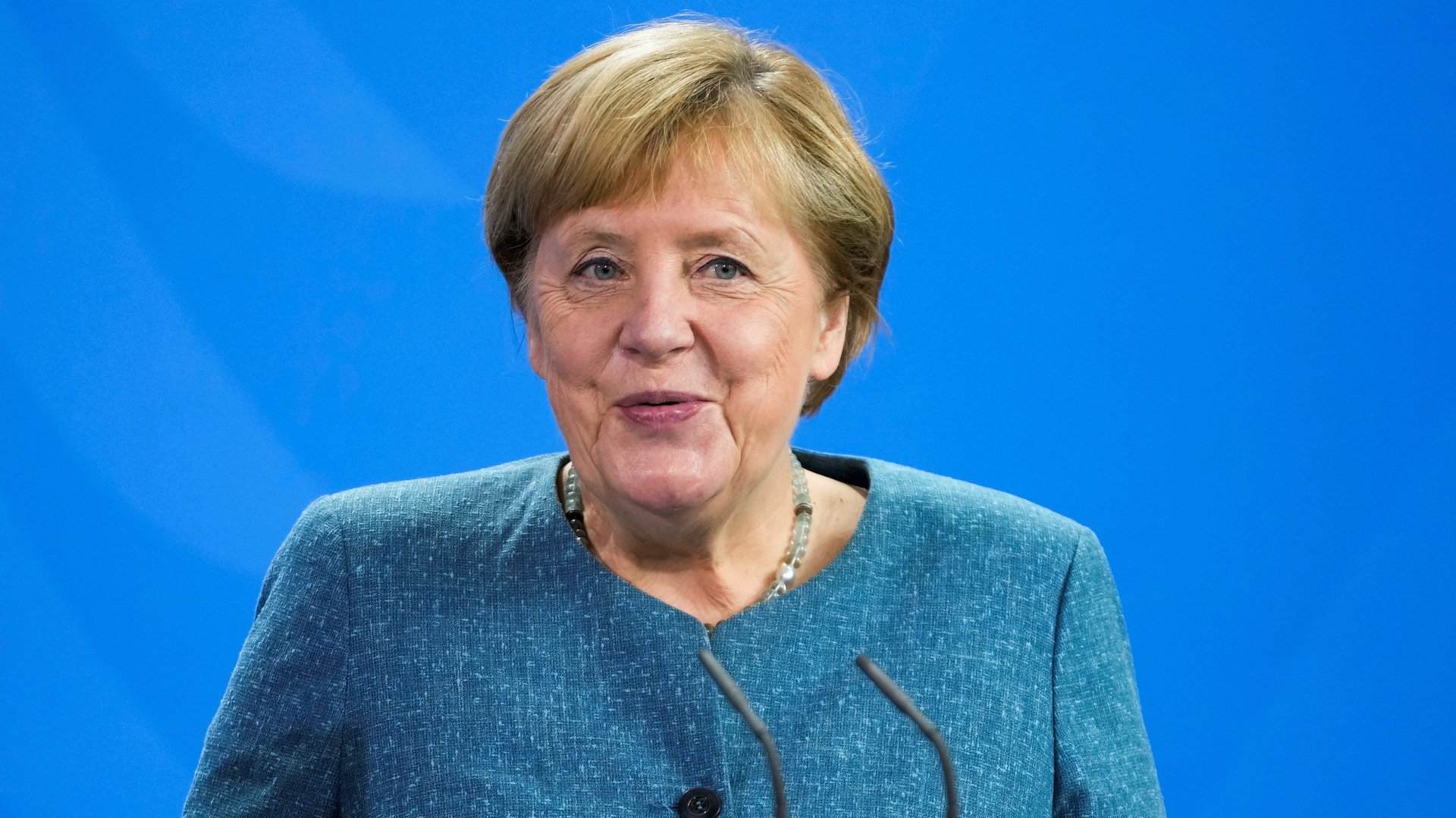Only one country in western Europe has a low opinion of Angela Merkel
Angela Merkel has been in a particularly high-powered job for a notably long time—and she’s made surprisingly few enemies. As chancellor of Germany for the past 16 years, Merkel, who leaves office following a general election this weekend, has garnered respect from around the European Union, in which she has played a guiding role, and elsewhere in the world.


Angela Merkel has been in a particularly high-powered job for a notably long time—and she’s made surprisingly few enemies. As chancellor of Germany for the past 16 years, Merkel, who leaves office following a general election this weekend, has garnered respect from around the European Union, in which she has played a guiding role, and elsewhere in the world.
Driving Germany’s climate change and energy policies and forming part of the global vanguard on financial crises, migration, and most recently the coronavirus pandemic, Merkel ends her tenure with higher global popularity ratings than her world-leader counterparts in the US, France, Russia, and China. She’s a popular woman.
With one major exception.
In Greece, a stark lack of confidence in Merkel’s approach to world issues is evident in data collected by the Pew Research Center:
The reason Greece has such a negative opinion of Germany generally and Merkel in particular can be summed up in one word: bailouts. When the financial crisis struck in 2008, it revealed and exacerbated a host of problems that had been simmering under the surface of Greece’s economy, including but by no means limited to poor fiscal management and high unemployment.
Since Greece adopted the euro currency in 2001, its economic fortunes were tied to that of most of the rest of the bloc, meaning that allowing its economy to collapse wasn’t an option. A series of bailouts began in 2009, recurring in 2012 and 2015, and finally ending in 2018. Germany was Greece’s main creditor, and tensions mounted between the countries as Greece perceived insults and suffered under belt-tightening demands, while Germany lost money propping up an economy that didn’t immediately get its act together.
Nothing that Greece has been through since the debt crisis—including even-higher unemployment, huge migration, climate change disasters, and coronavirus—has done much to make Germany more popular in the southern European country. Recent years have seen some thawing of negative sentiment, however. When Pew first surveyed Greeks in 2012, only 7% had confidence in Merkel, which by the latest poll had increased to a modest, certainly less terrible, 30%.